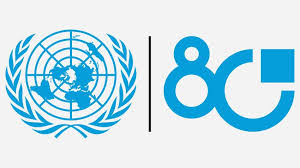June 26, 2025, marks 80 years since the signing of the UN Charter. The UN Secretary-General launched the UN80 Initiative to modernize the organization and address emerging global challenges.
Background of the UN
- The UN Charter was signed on June 26, 1945, after World War II, in San Francisco by 50 countries.
- It came into force on October 24, 1945, celebrated as United Nations Day.
- The Charter has a Preamble and 111 Articles arranged into chapters.
- Key aims: peacekeeping, human rights, development, and international cooperation.
UN Principal Bodies
- General Assembly
- Security Council
- Economic and Social Council (ECOSOC)
- Trusteeship Council
- International Court of Justice (ICJ)
- UN Secretariat

UN80 Reform Initiative – Core Areas
- Efficiency & Simplification: Cut duplication and bureaucracy, shift functions to lower-cost locations.
- Mandate Review: Use AI tools to filter and remove outdated mandates among 40,000 existing ones.
- Structural Realignment: Reshape institutions and streamline UN programme structure.
Why Reforms Are Needed
- Financial Stress: Many member states delay payments; only 75 paid 2025 dues on time.
- Overlapping Mandates: Outdated tasks hinder flexibility.
- New Global Challenges: Need for better tech governance, climate response, and conflict resolution.
- Lack of Trust: Rising geopolitical tensions have reduced global faith in the UN.
India’s Position
- Supports comprehensive UN reform, especially expanding the Security Council.
- Member of the G4 group (India, Brazil, Germany, Japan) pushing for representation of new powers and regions.
- Has served 8 times as a non-permanent member of the Security Council.
Challenges Ahead
- P5 resistance to sharing veto power.
- No consensus or binding reform text in Intergovernmental Negotiations (IGN).
- Lack of financial clarity and oversight tools for reforms.
- Rise of regional blocs (BRICS, SCO, Quad) may divert focus from UN reforms.
Conclusion:
The UN80 Initiative is a vital step to upgrade the United Nations for 21st-century needs. However, its success depends on political consensus, inclusive negotiations, and strong accountability.





